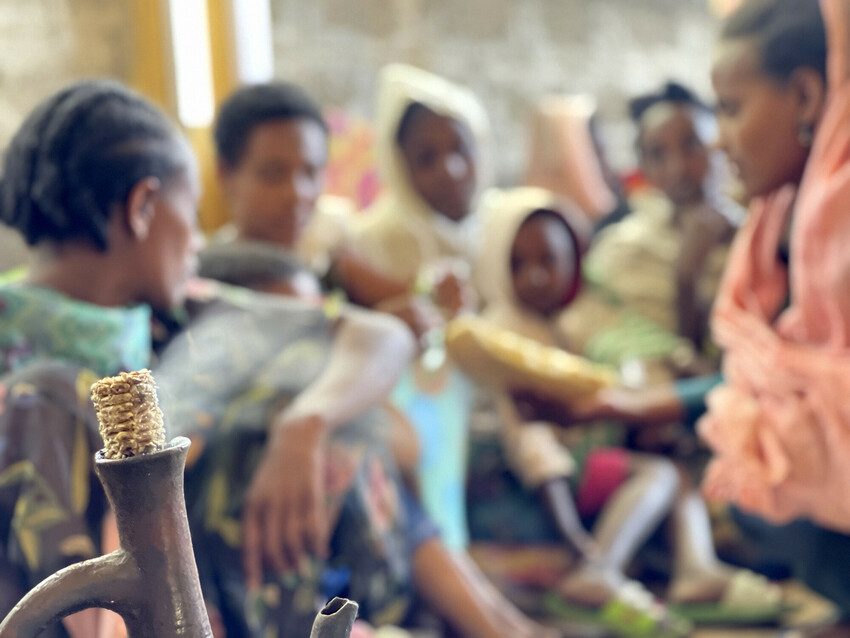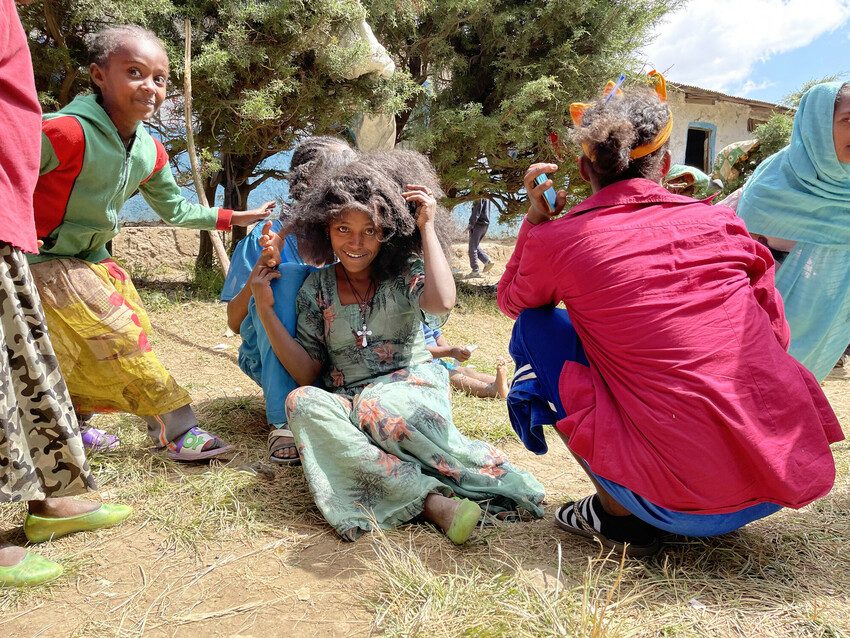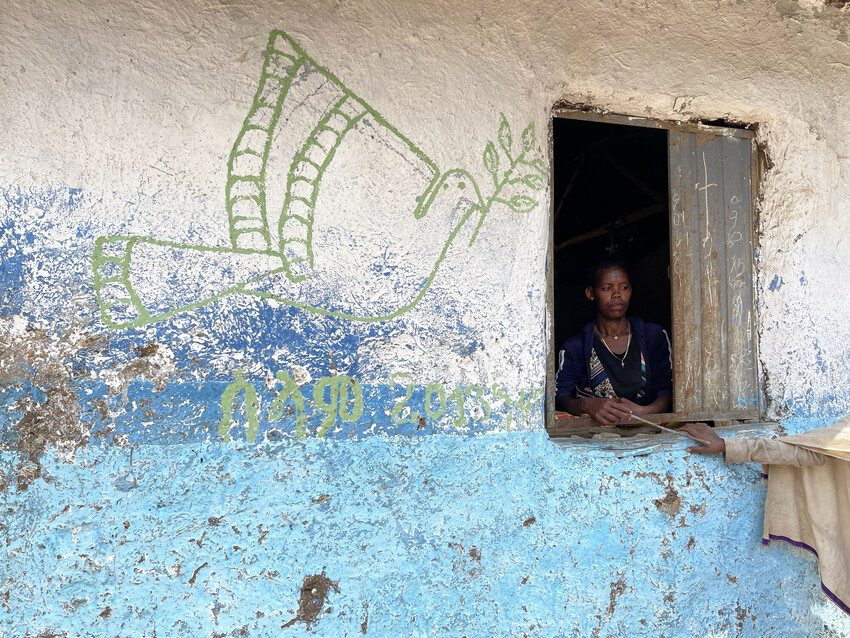Cash transfers as a support for families in need in Ethiopia
How do cash transfers work?
4 March 2024For years, Ethiopia has been facing various crises, including armed conflict, a food crisis, extreme drought and floods. As a result, more than a million people have been displaced within the country. Plan International works with our partners to provide emergency aid in several regions in the country, including through cash assistance.

Women and children are living in crowded conditions in IDP camp set up in school. Photo credit: Plan International.
For this story, we’re going to Amhara, northern Ethiopia. The region stretches from the capital Addis Ababa in the centre of the country to the border with Sudan in the northwest. Nearly 20 million people live in an area that has been plagued by crises for years.
People on the run
Amhara borders the Tigray region, in the north of Ethiopia. An armed struggle has been taking place here for years, causing millions of people to flee to other parts of Ethiopia, including Amhara. Despite a ceasefire that is in place since November 2022, unrest still occurs and a million people have been displaced. Estimates indicate that around one and a half million people have returned to their towns and cities in Tigray, but they often have to start over as they have nothing left.
Amhara also faces a food crisis, with an estimated 21% of children malnourished. This is caused, among others, by extreme drought, which causes crops to fail, livestock to die and, as a result, many people to lose their income.
Children need to be protected
Children, and girls in particular, are hit hardest in crisis situations, and Ethiopia is no different. They are separated from their families, and often experience abuse, sexual and domestic violence, or are exploited. In Amhara, Plan International works as a partner of the European Union to help protect children and their families. One way we do this is by cash assistance: giving cash to people so that they can buy themselves what they need.

Cash assistance is, in some cases, considered much more effective than providing goods because each person and family have different needs, ranging from a tarp to cover their temporary shelter to sanitary pads for their daughter.
In cash transfers, Plan International looks primarily at the situation of the children in families, for instance focusing on who is seriously ill or at risk, or children who have lost their parents and now live with another family, or families where the eldest child has to take care of the rest, because the parents are no longer there.

On the run with a child with a disability
Children with disabilities can often be overlooked in a crisis, despite the heightened risk they find themselves in or the disproportionate impact a crisis can have on them.
Yeshi is the proud mother of fourteen-year-old Zinet. She has a disability that makes it difficult for her to speak and often tries to hurt herself. Yeshi is working full-time to care for her daughter. Due to the conflict in Ethiopia, they lost their home and most of their possessions. The family had to flee, an already unimaginable situation that becomes even more difficult with a child with multiple disabilities. Without a home and an income, they barely manage to survive. “We couldn’t even get basic necessities,” says Yeshi.
Her family is one of 300 in Amhara’s who are now able to provide necessities such as food and hygiene items with cash transfers. Yeshi also uses the money to buy supplies to take care of her daughter.
The project is funded by the Directorate-General for European Civil Protection and Humanitarian Aid Operations (DG ECHO), European Commission.
Every child has the right to proper support, including in a crisis.


